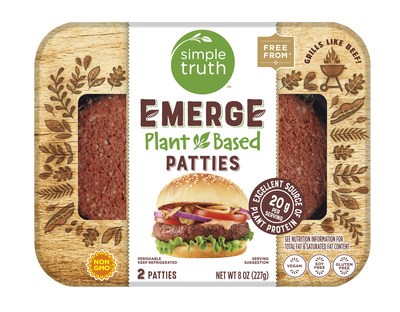A few thousand cattlemen met at the bar
NCBA survey shows "widespread consumer confusion regarding the ingredient composition and purported benefits of plant-based fake meat products."
February 8, 2020

The cattle industry recently met in San Antonio, Texas, for the annual Cattle Industry Conference & NCBA Trade Show. The meeting was just down the street from the Alamo.
Finding itself under attack by hostile vegetarians, they might have wished they were inside that hallowed bit of Texas-based Americana. As we all know, however, things didn't turn out well for old Daniel Boone and his band of merry men.
They fought bravely and well for 13 days, holding off several thousand Mexican troops under President General Antonio López de Santa Anna. He defeated the defenders, though, reclaimed the Alamo Mission, and killed all the 'Texian' and immigrant occupiers. Anger about the massacre rejuvenated a failing rebellion and led to the founding of the nation of Texas a few months later.
Mounting a mighty defense against fake meat attackers like Impossible Foods and Lightlife, NCBA released a survey at the conference that showed "widespread consumer confusion regarding the ingredient composition and purported benefits of plant-based fake meat products." Let's hope this modern-day group of Texians and immigrants can defend the fort more successfully than their ancestors.
The online survey of more than 1,800 consumers indicated less than half of the respondents were confused by the labeling term "plant-based beef." They did not understand it was intended to describe an entirely vegetarian or vegan food. The processors are very careful to ensure the label remains 'uncertain.' Illustrating how misleading the promotions for these products are, here are a few things to many consumers believed:
- Nearly two-thirds of respondents believed the fake meat products produced by Beyond Meat, Impossible Foods and LightLife contained real beef or some form of animal byproduct;
- Almost a third, shown a package of Beyond Meat's "Beyond Burger" plant-based patties (which features a cow icon), told researchers that they thought the patties contained at least small amounts of real meat;
- More than a third, shown a package of Lightlife's "Gimme Lean," which features the word "Beef" highlighted in a red box, said the product contained at least some real beef in advertising. Knowing the hallowed place beef owns in the American diet, the plant-based fake meat business is trying to bask in 'reflected glory' by riding on the coattails of real beef. The reputation and images brought to the public mind by concepts like "Beef, It's What's for Dinner' is just too much for the fake meat processors' marketing teams to ignore.
It all sounds like a grab for reflected glory to me.
Dictionary definition of reflected glory: Respect or admiration that a person gets because of something that someone else has done. "He enjoyed basking in the reflected glory of his famous brother's success."
In this case, the famous brother is beef. The little brother wannabe is highly processed, sodium-laden stuff like Beyond Meat. Let's break it down: Beef is famous for containing just one ingredient: real meat. What's in that other stuff? At least 18 ingredients including water, pea protein, expeller-pressed canola oil, refined coconut oil, rice protein, natural flavors (how many?), cocoa butter, mung bean protein, methylcellulose, potato starch, apple extract, pomegranate extract, salt, potassium chloride, vinegar, lemon juice concentrate, sunflower lecithin, beet juice extract (for color).
Setting the ingredient list aside, how did Good Housekeeping compare them for healthy eating?
4 oz Beyond Burger → 4 oz Grass-fed burger
Calories: 250 224
Total fat: 18 g 14 g
Saturated fat: 6 g 6 g
Cholesterol: 0 mg 70 mg
Sodium: 390 mg 77 mg
Carbohydrate: 3 g 0 g
Fiber: 2 g 2 g
Protein: 20 g 22 g
The bottom line: Got a cholesterol problem? Check with your doctor about switching to Beyond Burger. Make sure your salt intake is well under control, first. That fake meat product is a sodium bombshell. Dietary Guidelines for Americans recommends limiting sodium intake to less than 2,300 mg per day, equal to about 1 teaspoon of salt!
If you are interested in taste? Beef wins in a landslide.
About the Author(s)
You May Also Like



